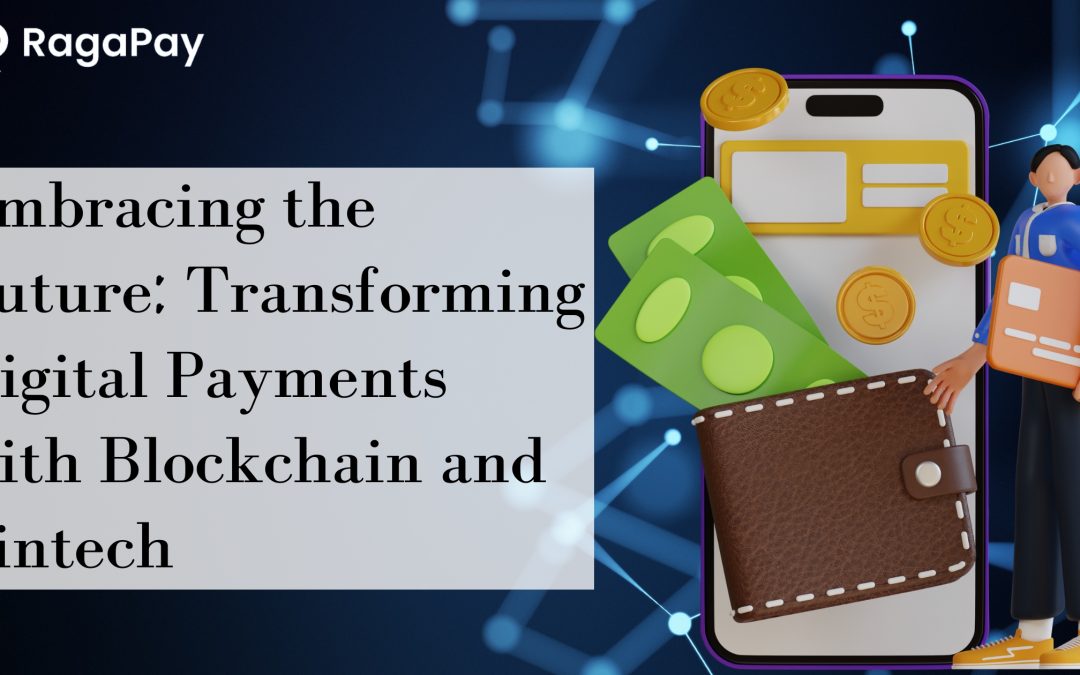Introduction
In the ever-evolving landscape of technology, few advancements have captured the imagination and potential for transformation as profoundly as blockchain and fintech. These disruptive forces have already made significant waves in the realm of digital payments, offering unprecedented security, transparency, and efficiency. As we venture into a future where digital transactions reign supreme, let’s explore the exciting developments that lie ahead for the world of digital payments, powered by the convergence of blockchain and fintech.
Enhanced Security and Data Privacy
The traditional payment systems have long been plagued by security concerns and data breaches, leading to millions of compromised user accounts and financial losses. However, with blockchain’s decentralized and immutable ledger system, the risks associated with fraudulent activities and unauthorized access are drastically reduced. The technology’s cryptographic algorithms ensure that every transaction is securely encrypted and validated by a network of nodes, making it nearly impossible for bad actors to manipulate the system.
Fintech companies are also actively integrating biometric authentication, multi-factor authentication, and advanced encryption methods to further fortify the security of digital payment platforms. This amalgamation of blockchain and fintech promises a future where consumers can conduct transactions with absolute peace of mind, fostering greater trust in digital payments.
Instant Cross-Border Transactions
Sending money across borders has traditionally been an expensive and time-consuming process, involving intermediaries and high transaction fees. Blockchain’s ability to eliminate the need for intermediaries streamlines cross-border transactions, allowing for near-instantaneous peer-to-peer transfers with lower fees.
Fintech platforms are leveraging blockchain’s capabilities to enable global remittances and payments, empowering businesses and individuals to transact seamlessly on an international scale. As a result, the future of cross-border payments appears to be fast, cost-effective, and hassle-free.
Tokenization of Assets
Blockchain’s inherent ability to tokenize real-world assets holds immense potential in revolutionizing digital payments. Tokenization involves representing physical assets, such as real estate, stocks, or commodities, as digital tokens on a blockchain network. These tokens can then be easily bought, sold, and traded, making traditionally illiquid assets highly liquid.
Fintech platforms are at the forefront of this revolution, creating decentralized marketplaces where individuals can invest in fractions of assets and diversify their portfolios with ease. As a result, the tokenization of assets is set to democratize investments and unlock a new era of financial inclusion.
Smart Contracts for Automated Payments
Smart contracts, self-executing contracts with the terms of the agreement written directly into code, are another groundbreaking application of blockchain technology. These contracts eliminate the need for intermediaries, as the conditions are automatically enforced when pre-defined conditions are met.
Fintech companies are incorporating smart contracts into various payment scenarios, from salary payments to insurance claims. This automation expedites payment processes, reduces administrative overhead, and minimizes the potential for errors or disputes.
Conclusion
The future of digital payments, powered by the symbiotic combination of blockchain and fintech, is remarkably promising. Enhanced security measures, instant cross-border transactions, tokenization of assets, and automated smart contracts are just a few of the game-changing innovations on the horizon. As we embrace this transformative era, businesses and individuals alike must be prepared to adapt and leverage the potential of blockchain and fintech to stay at the forefront of digital payment revolution.
However, while the potential benefits are vast, challenges such as regulatory compliance, scalability, and widespread adoption remain to be addressed. Collaboration between industry stakeholders, policymakers, and technologists will play a vital role in harnessing the full potential of blockchain and fintech, paving the way for a future where digital payments are more secure, accessible, and efficient than ever before.

